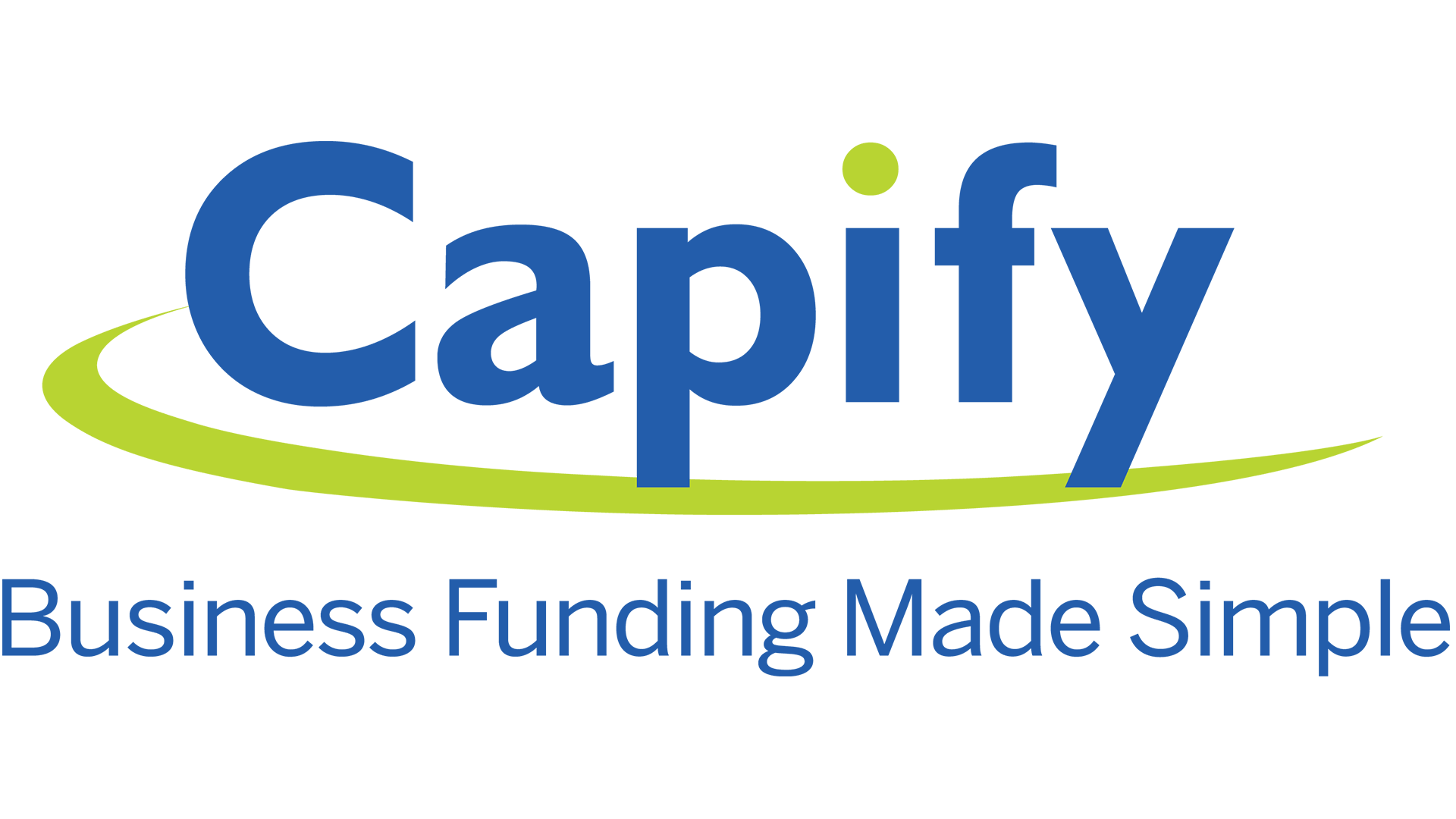Borrowing money from banks or lenders can be difficult especially when predatory lenders lurk in the shadows, ready to take advantage of vulnerable individuals in need of financial assistance. Responsible borrowing is not just about getting the funds you need; it’s also about protecting yourself from unscrupulous lenders who might trap you in a cycle of debt.
Understanding the red flags of predatory lending is crucial. Predatory lenders often target those with poor credit histories or urgent financial needs, offering seemingly attractive loan terms but with hidden traps that can lead to exorbitant fees and interest rates.
In this article, we’ll discuss some practical tips to help you avoid predatory lenders and make informed financial decisions that align with your long-term goals. We’ll delve into these warning signs and equip you with the knowledge to spot them. Additionally, we’ll explore alternative borrowing options and strategies to ensure you can access the funds you need without falling victim to predatory practices.
Why Borrowers Fall Victim
Borrowers often find themselves ensnared by predatory lenders due to a combination of factors that leave them vulnerable to these unscrupulous practices.
Desperation for quick cash
The pressing need for quick cash can lead individuals to make hasty decisions. Life is unpredictable, and unexpected emergencies or financial crises can strike at any moment. In these moments of desperation, people may overlook the fine print and accept seemingly attractive terms from predatory lenders who promise swift solutions. This desperation to resolve immediate financial issues can cloud judgment and lead borrowers down a perilous path.
Lack of financial knowledge
Secondly, a lack of financial knowledge can leave borrowers ill-equipped to distinguish between legitimate lenders and predatory ones. Without a solid understanding of interest rates, loan terms, and hidden fees, individuals may unwittingly enter into agreements that ultimately work against their best interests. This lack of financial literacy can make it easier for predatory lenders to exploit borrowers.
Limited access to traditional lending
Moreover, limited access to traditional lending institutions can force some borrowers to turn to alternative sources, making them susceptible to predatory lenders who exploit their lack of options. These lenders may specifically target those who have been marginalised or have limited access to mainstream financial services. Vulnerable groups, including low-income individuals, minorities, and the elderly, are particularly at risk.
How predatory lenders target specific demographics
Predatory lenders exploit the vulnerabilities and unique circumstances of specific demographics to exploit their customers. They target low-income individuals, minority communities, elderly individuals, military personnel, and students and young adults. These lenders offer loans with easy approval processes and minimal documentation, but often come with high interest rates and fees, trapping borrowers in a cycle of debt. They may also set up shops in low-income neighbourhoods, making their services easily accessible to those in need.
Minority communities are particularly vulnerable to predatory lending practices, as they may use aggressive marketing tactics that appeal to cultural or ethnic ties to build trust and exploit language barriers, leading to unknowingly agreeing to unfair terms and excessive fees. Elderly individuals are more susceptible to deception, as they may lack familiarity with modern financial systems. Military personnel are prime targets for predatory lenders, as they often face financial challenges due to frequent relocations and deployments. They may exploit their financial stress by offering military-specific loans with exorbitant interest rates and fees. Lastly, students and young adults, often without established credit histories, can be drawn in by predatory lenders offering easy-to-obtain loans or credit cards. They may not fully disclose the high interest rates, leading borrowers into significant debt. Community organisations and government agencies also play a crucial role in raising awareness and combating predatory lending within these communities.
Tips for Responsible Borrowing
Responsible borrowing is essential to safeguard your financial well-being and avoid falling victim to predatory lenders. Here are some practical tips to help you make informed decisions when borrowing:
Educating Oneself About Lending Options
- Understanding the Different Types of Loans: Before taking out any loan, it’s crucial to understand the various types available, such as personal loans, mortgages, auto loans, and credit cards. Each has its terms, interest rates, and repayment requirements. Knowing the specifics of the loan you need will enable you to make the best choice for your circumstances.
- Knowing Your Credit Score and Creditworthiness: Your credit score plays a significant role in the interest rates and terms you’ll receive when borrowing. Regularly check your credit report and score, and work on improving it if necessary. A higher credit score can lead to better loan offers, ultimately saving you money.
Building an Emergency Fund to Reduce the Need for Quick Loans
Building a financial safety net through an emergency fund can help reduce the urgency of needing quick cash. Having savings set aside for unexpected expenses can prevent you from resorting to high-cost loans when financial emergencies arise.
Creating and Following a Budget
A well-thought-out budget is a powerful tool for responsible borrowing. It allows you to track your income and expenses, helping you identify areas where you can cut back and save. By adhering to a budget, you’ll be better equipped to manage your finances and make informed borrowing decisions.
Seeking Financial Counseling and Education
Don’t hesitate to seek guidance from financial experts or counsellors. They can provide valuable insights and strategies for managing your finances, reducing debt, and making informed borrowing choices. Many nonprofit organisations and government agencies offer free or low-cost financial education programs that can equip you with the knowledge and skills needed to navigate the lending landscape responsibly.
Identifying Predatory Lenders
Identifying predatory lenders is crucial to safeguard yourself from financial harm. Here are some red flags to watch for when assessing lenders:
- High-Interest Rates and Fees: One of the most significant indicators of a predatory lender is exceptionally high interest rates and fees. These lenders often prey on individuals in dire need, offering loans with exorbitant costs that can quickly spiral out of control.
- Unusually Short Repayment Terms: Predatory lenders may impose unusually short repayment terms, forcing borrowers to make unaffordable payments in a very short period. This can lead to a cycle of debt as borrowers struggle to keep up with the rapid repayment schedule.
- Lack of Transparency in Loan Terms: Beware of lenders who are not transparent about the terms of the loan. Predatory lenders often bury hidden fees and charges in the fine print, making it challenging for borrowers to fully understand the true cost of the loan.
- Pressure Tactics and Aggressive Marketing: Predatory lenders may use aggressive marketing tactics, such as unsolicited phone calls, emails, or even door-to-door visits. They may pressure you into taking out a loan, creating a sense of urgency that leaves you with little time to consider the terms.
How to Research and Verify Lenders
- Check Licensing and Accreditation: Verify that the lender is licensed to operate in your state or territory. Many government websites provide databases where you can check the credentials of lenders. Accreditation by reputable industry organisations is also a positive sign.
- Read Online Reviews and Complaints: Look for customer reviews and complaints about the lender online. While a few negative reviews are common, a pattern of complaints about hidden fees, aggressive tactics, or exorbitant interest rates should raise concerns.
- Research Their History: Investigate the lender’s history and track record. How long have they been in business? Do they have a history of lawsuits or regulatory actions? This information can provide insights into their legitimacy and trustworthiness.
- Compare Multiple Offers: Don’t rush into a loan agreement with the first lender you encounter. Shop around and compare loan offers from multiple sources. This will give you a better understanding of the prevailing market rates and terms.
- Seek Recommendations: Ask friends, family members, or colleagues for recommendations. They may have had positive experiences with reputable lenders and can provide valuable insights.
Evaluating Loan Terms
Evaluating loan terms carefully is essential to ensure you’re getting a fair and transparent deal. Here’s how to scrutinise loan offers and, when necessary, negotiate terms with reputable lenders:
- Understanding the Annual Percentage Rate (APR): The APR represents the true cost of borrowing, as it includes not only the interest rate but also any additional fees and charges. Compare APRs among different lenders to get a clear picture of which loan offer is the most cost-effective. A lower APR generally indicates a more affordable loan.
- Analysing the Total Cost of Borrowing: Beyond the APR, calculate the total cost of borrowing over the life of the loan. This involves multiplying the monthly payment by the loan’s term. Understanding the total cost will help you determine if the loan is financially manageable and whether it fits within your budget.
- Checking for Hidden Fees and Penalties: Thoroughly review the loan agreement for any hidden fees or penalties. These can include application fees, prepayment penalties, or late payment charges. Reputable lenders are transparent about these costs, so be wary if you encounter any unexpected charges.
Negotiating Loan Terms with Reputable Lenders
- Shop Around and Compare Offers: Before accepting a loan offer, gather multiple quotes from different lenders. Use these offers as leverage when negotiating with the lender of your choice. Let them know that you’ve received other offers and are looking for the best terms.
- Discuss Flexible Terms: Reputable lenders may be willing to negotiate loan terms to accommodate your needs better. For example, you can inquire about adjusting the loan’s repayment schedule or extending the term to lower monthly payments. However, be cautious and ensure that any changes align with your long-term financial goals.
- Seek Preapproval: Getting preapproved for a loan can provide you with more negotiating power. Lenders are more likely to offer favourable terms to borrowers they’ve already preapproved.
- Use Your Creditworthiness: If your credit score has improved since you applied for the loan, use it to your advantage. A better credit score may make you eligible for lower interest rates and better terms.
- Consider a Cosigner: If you have a less-than-perfect credit history, having a cosigner with a strong credit profile can help you secure better loan terms. Just be aware that your cosigner is equally responsible for repaying the loan.
The Role of Regulation
Regulations and laws are in place to protect consumers from predatory lending practices. Here’s an overview of these regulations, along with steps on how to verify a lender’s compliance with state and federal laws and how to report predatory lenders to regulatory authorities:
Regulations and Laws Aimed at Curbing Predatory Lending in Australia
- National Consumer Credit Protection Act (NCCP): The NCCP Act is a key piece of legislation that regulates consumer credit activities in Australia. It requires credit providers to obtain an Australian Credit License (ACL) and sets responsible lending obligations to ensure that credit contracts are suitable for consumers.
- Responsible Lending Conduct Obligations: Under the NCCP Act, lenders are obligated to assess a borrower’s financial situation and needs before providing credit. They must also make reasonable inquiries about the borrower’s requirements and objectives and ensure the credit contract does not place undue hardship on the borrower.
- Interest Rate Caps: In some Australian states, there are interest rate caps in place to prevent lenders from charging excessively high interest rates on loans.
How to Verify a Lender’s Compliance with State and Federal Laws in Australia
- Check for an Australian Credit License (ACL): Lenders must hold a valid ACL issued by the Australian Securities and Investments Commission (ASIC) to operate legally. You can verify a lender’s licensing status on ASIC’s website.
- Review Loan Documentation: Carefully review all loan documents and disclosures provided by the lender. Ensure that the terms, including interest rates, fees, and repayment schedules, are in line with the NCCP Act’s responsible lending obligations.
- Seek Legal Advice: If you have concerns about a lender’s compliance with Australian lending laws, it may be wise to consult with a legal expert or financial counsellor who specialises in consumer credit matters.
Reporting Predatory Lenders to Regulatory Authorities in Australia
- Contact ASIC: If you believe you have encountered a predatory lender or a lender that is not complying with lending laws, you can report the issue to the Australian Securities and Investments Commission (ASIC). ASIC is responsible for regulating credit providers and enforcing lending laws.
- Contact the Australian Financial Complaints Authority (AFCA): If you have a dispute with a lender, you can also contact AFCA, an independent dispute resolution scheme, to seek assistance in resolving the issue.
- Notify the Office of Fair Trading (in relevant states): Depending on your state or territory, you may also need to report predatory lending practices to the local Office of Fair Trading or Consumer Affairs office.
Predatory lending practices are taken seriously in Australia, and regulatory authorities are committed to enforcing lending laws to protect consumers. Reporting any predatory lending behaviour helps maintain the integrity of the lending industry and safeguards consumers from unfair financial practices.
Borrower Rights and Protections
Borrowers in any lending transaction have rights and protections that are essential to ensure fair and ethical treatment. Here’s a breakdown of your rights as a borrower and how to exercise them:
- The Right to Clear and Understandable Loan Terms: As a borrower, you have the right to loan terms that are transparent and easy to comprehend. Lenders must provide you with all the essential details of the loan, including the interest rate, fees, repayment schedule, and any penalties. This information should be presented clearly and straightforwardly.
- The Right to Privacy: Your financial information is sensitive, and you have the right to privacy. Lenders should handle your personal and financial data with care and not share it with third parties without your consent. They must also adhere to relevant data protection laws and regulations.
- The Right to Reject a Loan Offer: Borrowers are under no obligation to accept a loan offer. You have the right to review the terms and conditions, compare offers from different lenders, and make an informed decision that suits your financial needs and capabilities.
How to Exercise Your Rights and Seek Redress for Violations
- Review Loan Documents Carefully: When presented with a loan offer, carefully review all documents, including the loan agreement and disclosure statements. Ensure that the terms are clear and consistent with what was discussed during the application process.
- Ask Questions and Seek Clarification: If you have any doubts or concerns about the loan terms, don’t hesitate to ask the lender for clarification. They should be able to provide you with a satisfactory explanation of any unclear points.
- Document Everything: Keep records of all correspondence, documents, and interactions with the lender. This includes emails, letters, and notes from phone calls. These records can be crucial if you need to dispute any issues or seek redress for violations.
- Contact Regulatory Authorities: If you believe your rights as a borrower have been violated, you can contact the relevant regulatory authorities in your jurisdiction. In the United States, for example, you can reach out to the Consumer Financial Protection Bureau (CFPB) or the appropriate state agency that oversees financial institutions.
- Seek Legal Counsel: If you encounter serious violations of your borrower rights, you may want to consult with an attorney who specialises in consumer protection or lending laws. They can provide legal advice and assist you in taking appropriate legal action.
- Use Dispute Resolution Services: Many countries have dispute resolution services or ombudsman schemes that can help resolve disputes between borrowers and lenders. These services provide a mediation process to reach a fair resolution.
Understanding your rights as a borrower and being proactive in protecting them is crucial to maintaining fair and ethical lending practices. If you believe your rights have been violated, taking the appropriate steps to seek redress can help rectify the situation and protect your financial interests.
Conclusion
Responsible borrowing is a critical aspect of financial well-being, and understanding the dynamics of lending, identifying predatory practices, and knowing your rights as a borrower are essential steps in safeguarding your financial future. By educating yourself about different types of loans, building an emergency fund, creating a budget, and seeking financial counselling, you can make informed decisions and avoid falling victim to unscrupulous lenders.
Additionally, regulations and laws play a pivotal role in curbing predatory lending, providing borrowers with vital protections. By staying informed, scrutinising loan terms, and reporting any violations, individuals can ensure that their rights are upheld in the lending landscape. Ultimately, responsible borrowing empowers individuals to achieve their financial goals while maintaining their financial stability and security.



























